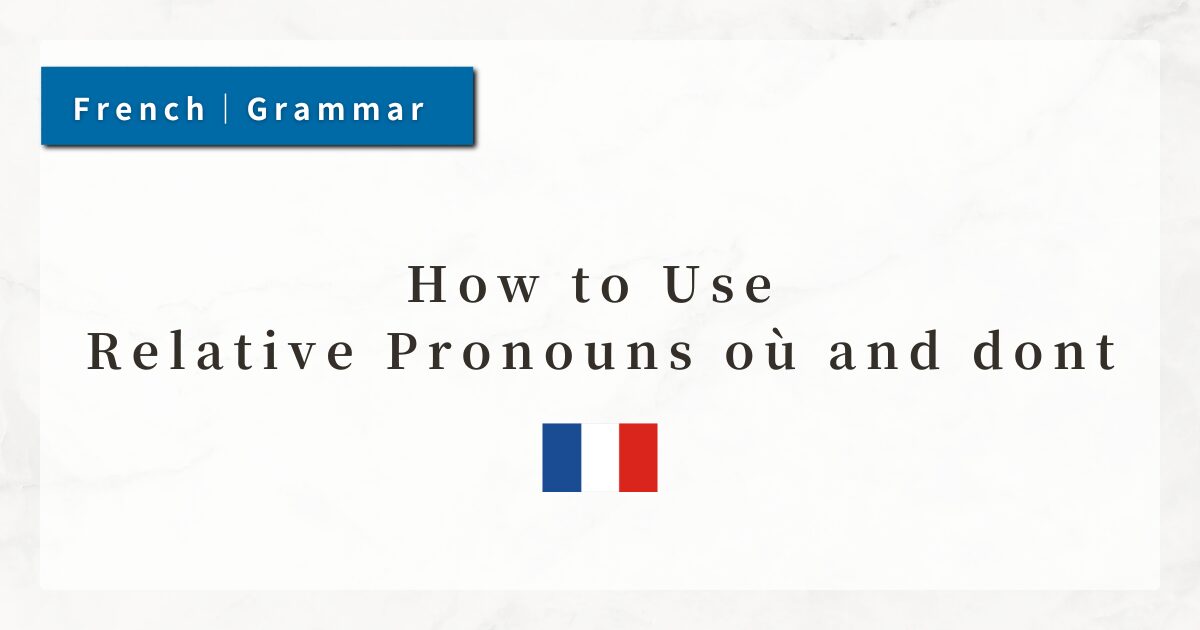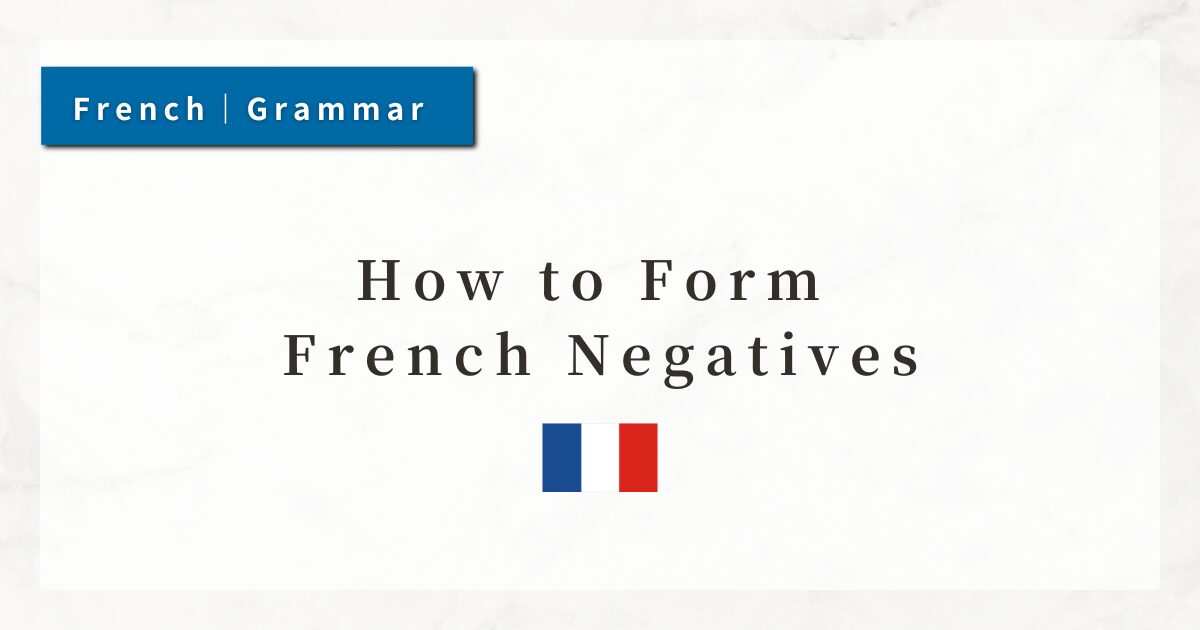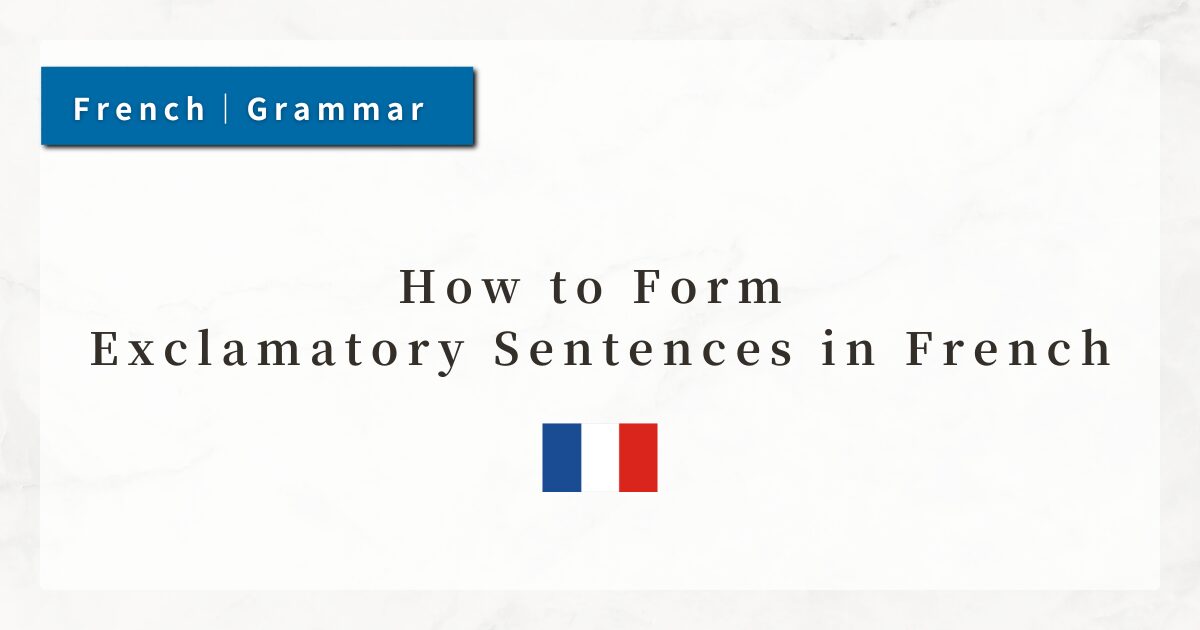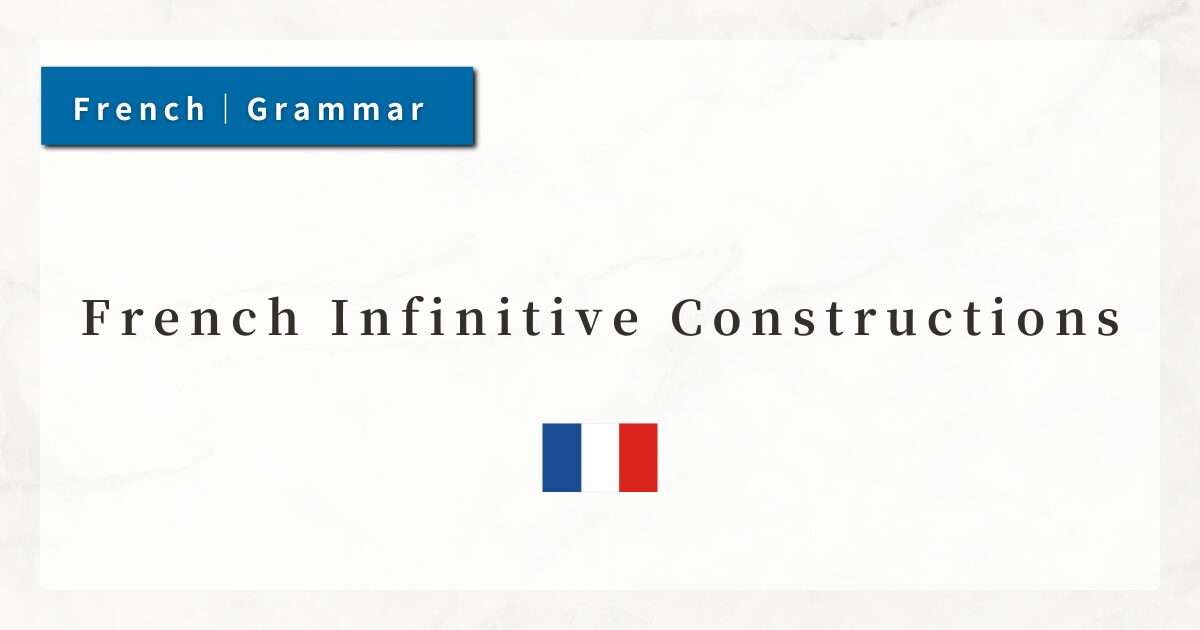#37 How to Use Relative Pronouns où and dont | Meanings and Functions

In French, relative pronouns are indispensable when adding extra information and connecting two sentences smoothly.
Among them, où and dont are very common in both spoken and written French. Using them correctly will make your sentences more natural and expressive.
In this lesson, I will explain the roles, usage, and key points of où and dont, with clear examples.
1. What Are the Relative Pronouns où and dont?
Relative pronouns introduce clauses that describe a noun (the antecedent) and link two sentences smoothly.
The pronoun où refers to antecedents of place or time. The pronoun dont refers to antecedents that express a “de + noun” relationship.
1-1. Basic Use of où
Où is used with antecedents indicating a place or time, and it expresses meanings such as “where,” “in which,” or “when.”
It is not used with antecedents outside the categories of place or time.
- Voici l’endroit où je travaille.
(This is the place where I work.) - C’est le jour où nous nous sommes rencontrés.
(That is the day when we met.)
1-2. Basic Use of dont
Dont is used with verbs or expressions that require the preposition de, and it refers to both people and things.
- Voilà un ami dont je parle souvent.
(This is a friend I often talk about.) - C’est une idée dont je me souviens.
(That is an idea I remember.)
The key to recognizing dont is checking whether the verb or expression requires de + noun.
2. Usage and Nuance of où
Où is used when the antecedent refers to a place or time. Its function is similar to “where” or “when” in English.
- Voici l’endroit où nous avons mangé hier soir.
(This is the place where we ate dinner last night.)
In this example, endroit (place) is the antecedent, and où introduces the clause that describes what happened at that place.
When the antecedent refers to time:
- C’est l’année où j’ai commencé le français.
(That is the year when I started learning French.)
Here, année (year) is the antecedent, and où introduces the clause indicating the time of the action.
3. Usage and Key Points of dont
Dont is used with verbs or expressions that require de.
- parler de
(to talk about) - se souvenir de
(to remember) - avoir besoin de
(to need)
When the antecedent is explained through one of these verbs or expressions, dont is used.
- Voici un sujet dont je parle souvent.
(This is a subject I often talk about.)
Original sentence: “Je parle souvent de ce sujet.” The phrase “de ce sujet” is replaced by dont.
- If the antecedent is a place or time
→ use où - If the antecedent requires “de + noun” with the verb
→ use dont - Otherwise
→ use other relative pronouns such as qui or que
4. Summary
- Où is used when the antecedent refers to a place or time. It means “where,” “in which,” or “when.”
- Dont is used with verbs or expressions requiring de. It means “of which,” “about which,” or “whose.”
- Being able to distinguish between où and dont naturally makes your French more accurate and expressive when adding descriptive information.




